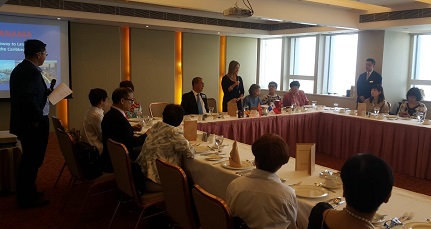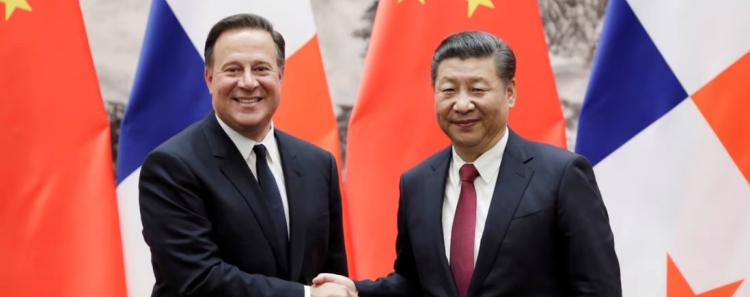THE TRUTH ABOUT THE MAURITIUS ISLAND AND THE SHIP REGISTRY
panamaconsulate 19 August, 2020 0 COMMENTS
PANAMA – AUGUST 16, 2020—- The Panama Ship Registry wants to respond to an unfortunate video circulating on social media, which is slanderous, defamatory, disrespectful and evil intentioned not only for the Panama Ship Registry but also our country and the way we do corporate business. It shows the total absence of knowledge on what are the international regulations that govern the maritime industry worldwide and more flagrantly, what is the Panama Ship Registry.
Contrary to what the video voices, the shipping industry is not unsafe; ships, that carry most of the world trade, are not dangerous. The Panama Ship Registry, the world’s leader in number of vessels and tonnage, is also a leader in environmental safety and labor conventions and abides by all the international conventions established by the International Maritime Organization (IMO) and the International Labor Organization. As a result, it has been on the White Lists of the Paris MoU for the past ten years, and of the Tokyo MoU and other Port State Control organizations, which record the safety of the vessels calling ports worldwide.
The bulk carrier Wakashio, was built by Universal Shipbuilding Corporation in Japan and incorporated to the Panamanian Registry on March 29, 2007, and has all its valid technical certification, issued by the NKCLASS (Nippon Kaiji Kyokai) Classification Society, a statutory certification valid until April 22, 2021, when it must undergo its cycle of inspections for due renovations. The last flag inspection was completed in Japan, March 1, 2020 in Kawasaki, Japan, and a previous Port State Inspection was conducted at Por Hedland, WA, Australia on the 14th of February 2020. Therefore, the ship, both in its structure and equipment, complies with the International Conventions established by the International Maritime Organization (IMO).
The Wakashio was manned by twenty (20) persons of different nationalities; all of them carried the proper certificates required for their positions and responsibilities on board, as required by the International Convention on Standards of Training, Certification and Watchkeeping for Seafarers and the insurance policies relating to pollution prevention; and as for civil liabilities, protection, indemnity and insurances, they are still in force and all were issued by The Japan Ship Owners’ Mutual Protection & Indemnity Association, one of the most prestigious companies available in the market.
This video accuses the Ship Registry of being laxed on the application of safety regulations. Nevertheless, as cited before, the Wakashio had passed all the required inspections, had the necessary insurance policies and was safe to sail.
The Panama Ship Registry deeply regrets the fuel spill on the coast of Mauritius as a result of this serious maritime accident and the Panama Maritime Authority [ the State body that oversees the Ship Registry] has offered its full cooperation to the authorities of the island of Mauritius with regards to the investigations into the causes of the accident. At present, the Panamanian Ship Registry is conducting the relevant investigations under the rules of the Code for the Investigation of Marine Casualties and Incidents, approved by the promulgation of Resolution A.849(20) of the International Maritime Organization (IMO).
It is not only unfair but totally inaccurate putting the blame of this accident on the Panama Ship Registry for the only fact that the vessel is registered under the flag of Panama.
In the last 5 years more than 200 reports of investigations of incidents and maritime accidents have been sent and published, to the corresponding entity which is the IMO. These reports are public for the 174 member-countries and its three associate members can refer to them. The information is public and transparent among the members. As a leader in flags of vessels, the Panamanian Registry was inspected more than 16 thousand times last year and the level of compliance was 96.5%, placing the Register at a high international level.
Furthermore, it is important to note that Panama’s legislation prohibits the use of cheap labor and is a leading nation with regards to the ratification of all ILO’s labor conventions. Panama has ratified and properly implement the Maritime Labor Convention on all its vessels bigger than 500gt.
The registration of a vessel under the flag of Panama is not a simple procedure. Panama has promulgated Law 23 of April 27, 2015 adopting measures for the prevention of money laundering, terrorism financing and financing of proliferation of mass destruction weapons and other provisions.
Moreover, not only the ship owner has to fill a number of technical documents but he has to submit to a due diligence where the vessel and/or the owner’s company are not included in any black list or linked to illegal and irregular activities. The due diligence process made by the Panama Ship Registry is of the utmost importance for the Panama flag and the vessels and owners go through a strict validation process.
The Register does not flag vessels of dubious origin. As an example, this year 2020 some 118 vessels have been rejected which did not comply with the requirements and 200 vessels have been cancelled, which did not meet international standards.
The registration of corporations in Panama [by ship owners] goes by a similar process of due diligence since Panama is signatory to the international tax cooperation forums led by the OECDE. It is therefore very irresponsible to point the finger at the Ship Registry and at Panama and accuse them of being a refuge for tax evaders. Panama is very proud of being the world’s leader Ship Registry, a Category A-member of the International Maritime Organization for the past ten years as well as one of the registries included in the most important world maritime Memorandum of Understanding (MoUs)’ White Lists. The Panama Ship Registry not only complies with its commitment to its customers and the international shipping community but also participates prominently, as a sector with all the maritime activities, to the Republic of Panama’s economy.
Read Spanish version here
RELATED ARTICLES
| M | T | W | T | F | S | S |
|---|---|---|---|---|---|---|
| « Sep | ||||||
| 1 | 2 | 3 | 4 | 5 | ||
| 6 | 7 | 8 | 9 | 10 | 11 | 12 |
| 13 | 14 | 15 | 16 | 17 | 18 | 19 |
| 20 | 21 | 22 | 23 | 24 | 25 | 26 |
| 27 | 28 | 29 | 30 | 31 | ||


